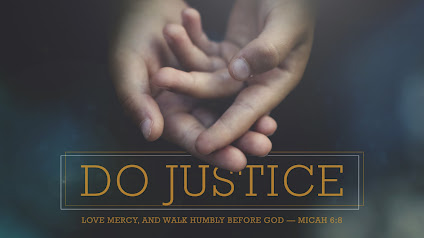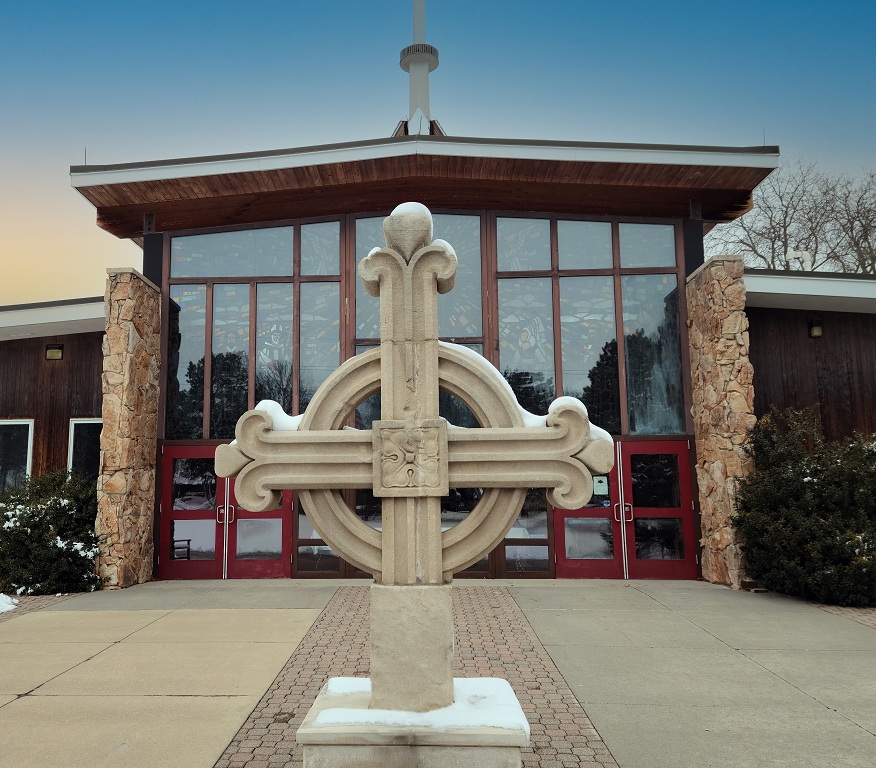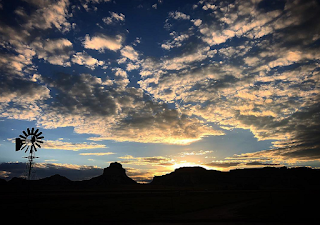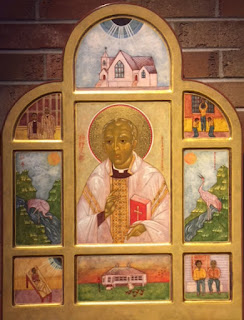Holding My Breath...
Like many of you, I’m sure, I held my breath this past week when reports of a shooting at Westroads started coming across my social media, remembering that traumatic and tragic December day in 2007, praying this was not a repeat. Just a few days earlier, I held my breath as we awaited details on the shooting at the FedEx facility in my home town, Indianapolis, since I have friends and friends’ children who work there. This week, like many of you, I held my breath and waited with anxiety and sadness for the verdict from the jury in Minneapolis deciding the case of Derek Chauvin.
We are a nation obsessed with, infected with, violence. Surely we need to find new and viable ways to address the racism that is still so obviously and painfully present throughout our society, the hopelessness and voicelessness that so many feel. And, just as surely our police and first responders have a difficult and dangerous job—we send them running in where we ourselves choose to run away. But perhaps that cuts to the heart of the problem: it is still too easy for most of us to run away from the heartbreaking issues many of our sisters and brothers live with daily. We long for peace; we long for justice. But what is justice, and who gets to define it?
Omaha Police Chief Todd Shamaderer said Tuesday that it was clear to him and his senior officers that “Chauvin was guilty and his actions were reprehensible.” “The jury’s verdict validates those sentiments and holds Mr. Chauvin accountable for his actions,” Schmaderer said in his statement. “Let’s use this moment as an opportunity to find common ground for police and communities all across this country as justice was served.” Jennifer Baskerville-Burrows, Episcopal Bishop of Indianapolis, said in her message following the Chauvin verdicts, “…Accountability is not the same thing as justice. I am aware of my deep longing for true justice, the kind that becomes possible when people like us promise to stand with the vulnerable and marginalized to transform systems of injustice.”
What is justice, and who gets to define it? For Christians, there is a straightforward answer to this.
Justice is intrinsically tied to Righteousness in the Bible. One of the resources I frequently use for youth confirmation classes, The Bible Project, has a brief, six-minute video explaining and exploring the Biblical definitions of these. I encourage you to watch it here https://bibleproject.com/learn/justice/, and I’ll give you a brief summary below.
In the Bible, humans are set apart as bearing the image of God. This identity is the foundation of the Biblical concept of justice: all humans are equal before God and have the right to be treated with dignity and fairness no matter who they are. We re-commit to this in this vow we all affirm at every Baptism: “Will you strive for justice and peace among all people, and respect the dignity of every human being?” “I will, with God's help.” The Bible is full of stories that show, over and over again, how sin causes us to pervert justice, to deny the image of God in each other, to be constantly redefining good and evil and justice to our own advantage at the expense of others. God chose Abraham to be the founder of Israel, a people specially commissioned to be a light to the world and show everyone the way and love of God by “doing” righteousness and justice.
“Righteousness” in the Bible is a Hebrew word for the ethical standard of right relationships between people with each other and with God. It’s about treating others as the image of God, with the God-given dignity they deserve. “Justice” in the Bible most often refers to restorative rather than retributive justice—of seeking out vulnerable people who are being taken advantage of and advocating for them—not charity, but changing social structures to actually prevent injustice. Justice and righteousness are about a radical, selfless way of life, the way of life God’s people are called to throughout the Bible. Here are just a few examples:
Speak out for those who cannot speak, for the rights of all the destitute. Speak out, judge righteously, defend the rights of the poor and needy. (Proverbs 31:8-9)
Thus says the Lord: Act with justice and righteousness, and deliver from the hand of the oppressor anyone who has been robbed. And do no wrong or violence to the alien, the orphan, and the widow. (Jeremiah 22:3)
God executes justice for the oppressed; God gives food to the hungry. The Lord sets the prisoners free; the Lord opens the eyes of the blind. The Lord lifts up those who are bowed down; the Lord loves the righteous. The Lord watches over the strangers; God upholds the orphan and the widow. (Psalm 146:7-9)
Is not this the fast that I choose: to loose the bonds of injustice, to undo the thongs of the yoke, to let the oppressed go free, and to break every yoke? Is it not to share your bread with the hungry, and bring the homeless poor into your house; when you see the naked, to cover them? (Isaiah 58:6-7)
The Bible, and our theology, and the weekly confession in our Sunday liturgy, tell us that we all participate in injustice; we are all guilty of sin. The Good News of the Gospel is that in Jesus we are all declared to be righteous—not because of anything we’ve done, but as a gift. This gift is not just a new status, but it is a power that changes our lives, requiring each of us to seek justice for others. Just as Jesus did, we are called to courageously and selflessly make other people’s problems our own problems. We are called to a daily, lifelong commitment to love our neighbors as ourselves.
The prophet Micah cried out to Judah for its injustice: “What does the Lord require of you but to do justice, and to love kindness, and to walk humbly with your God?” I’m praying that his plea will ring true in our ears 2,500 years later.
Yours in Christ,
Fr. Keith




Comments
Post a Comment